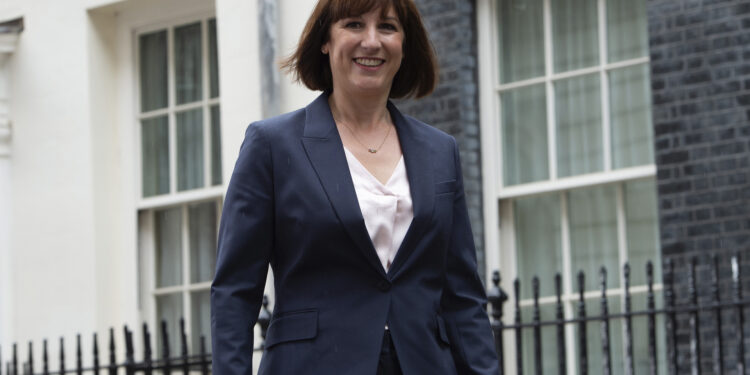10/30/2024–|Last updated: 10/30/202406:48 PM (Mecca time)
The British Labor government raised tax estimates in its new budget by 40 billion pounds annually ($52 billion), as it accused the former ruling Conservative Party of leaving public services idle after 14 years in power.
Finance Minister Rachel Reeves said the £22 billion ($28.53 billion) deficit in public finances that Labor inherited when it took power last July was exacerbated by non-payment of compensation, including to victims of the tainted blood scandal, and a lack of funding for services. Public.
“Any finance minister standing here today will face this reality,” Reeves said in her budget speech today. “Any responsible finance minister will take the necessary action. That is why, today, I am restoring stability to our public finances and rebuilding our public service.”
Increase taxes
According to the Institute for Fiscal Studies, tax increases amounting to 40 billion pounds sterling will be equivalent to 1.25% of economic output, which has only been exceeded in modern history by the 1993 budget plan under the Conservatives, which raised taxes to support public finances after the recession and currency crisis.
Reeves expected that Britain’s economy would grow more than expected this year and in 2025, but less than previously expected.
Reeves is expected to announce changes to the government’s budget rules to allow it to borrow more to invest in infrastructure and accelerate the pace of economic growth in Britain.
Bond strategists say they are confident that Reeves, a former economist at the Bank of England, will be more cautious than former Prime Minister Liz Truss, whose big tax cut plans undermined British debt prices in 2022 and led to her resignation.
Labor has promised voters to cut long waiting lists in the state-run health service, build more housing and improve schools, but it will fund higher spending on public services mainly through tax rises, not increased borrowing.
For his part, Prime Minister Keir Starmer said that those with greater financial solvency will have to pay more taxes.
Higher costs
Businesses face higher social security costs, which on top of planned new protections for workers and a rise in the minimum wage, could undermine Labour’s promises to transform Britain into the fastest growing economy in the G7.
The richest Britons are likely to face higher tax bills on capital gains, profits, inheritances and wealth held abroad, pushing up the country’s tax burden which is already the highest since shortly after World War Two.
Reeves did not rule out making more individuals pay basic and higher income tax rates, extending a tax policy introduced by the Conservatives after the Covid-19 pandemic.
This is the highlight of Reeves’ speech before the British House of Commons:
- The UK economy is expected to grow by 2% in 2025.
- Business National Insurance contributions will rise by 1.2% from April 2025.
- Capital gains tax will be increased for most assets and fuel tax will be frozen next year. Income tax brackets will not be frozen, but inheritance tax thresholds will be frozen until 2030.
- The tax on private aircraft flights will be raised by up to 50%.
- VAT will be imposed on private school fees starting from January 2025.
- A flat rate tax will be imposed on e-cigarettes from October 2026.



